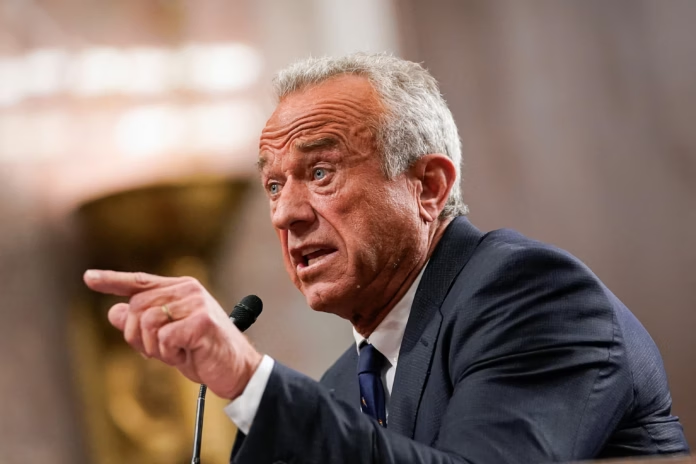Health Secretary Robert F. Kennedy Jr. has set off another firestorm among scientists. During a recent CBS News interview, RFK Jr. stated that vaccines against one antigen in respiratory illness have “never worked.” The remark was made in defense of the FDA’s holding back full approval of Novavax’s Covid-19 vaccine. The remark shocked experts and created an instantaneous ripple effect in medicine and finance.
What Are Single Antigen Vaccines? RFK Jr.’s Theory Explained
Kennedy’s assertion was focused on single antigen vaccines, which utilize only one component of a virus—usually a protein—to elicit an immune response. “It is a single antigen vaccine,” he said. “And for respiratory disease, the single antigen vaccines have never worked.” The statement was made in reference to Novavax’s Covid-19 vaccine, which is still under emergency use authorization.
Scientists Refute RFK Jr.’s Vaccine Comments
Scientists were quick to denounce Kennedy’s theory. Dr. Paul Offit, a prominent infectious diseases expert, labeled the claim flat-out wrong. “A single protein vaccine can absolutely prevent serious mucosal infections,” he said, pointing to several successful examples, such as Covid and flu vaccines.
Dr. Stanley Plotkin, who assisted in the development of the rubella and rotavirus vaccines, took it a step further. “This is another example of Kennedy being an ignoramus about vaccination,” Plotkin stated. “And you can quote me on that.”
Also read: Siemens CEO Agustín Escovar Dies in NYC Helicopter Crash – Full Story
Do Single Antigen Vacciness Really Work for Respiratory Viruses?
Most of the globe’s most successful respiratory vaccines are actually single antigen. Pfizer, Moderna, and Novavax Covid-19 vaccines all target the SARS-CoV-2 virus’s spike protein. Flu vaccines target mostly the hemagglutinin protein, while RSV vaccines target the F protein. These vaccines have been proven to avert serious illness, hospitalization, and mortality in numerous age groups.
Peter Marks, the former director of the FDA’s biologics center, described why single antigen vaccines are still the gold standard. “You target a surface protein that elicits a robust immune response. That has been the principle that has withstood the test of time,” he said. Marks, who was said to have been removed from the FDA during Kennedy’s tenure, stressed the need to make vaccine decisions based on good science—not political views.
Impact of RFK Jr.’s Vaccine Statement on Novavax and Moderna
The remarks by Kennedy had an instantaneous cost impact. Novavax’s shares declined 20%, while Moderna’s shares decreased by 8% in the hours after the interview. Investors dread that delays from the regulators and public skepticism would slow down approval of vaccines and slow up rollouts.
Michael Osterholm, the director of the University of Minnesota’s Center for Infectious Disease Research and Policy, was concerned. “Any one antigen vaccine on the basis of his words today is at risk,” he cautioned. The timing is especially worrying with the FDA poised to make decisions about approving a next-generation Covid vaccine from Moderna and whether or not to give full approval to pediatric versions of current vaccines.
Concerns About Political Interference in Vaccine Approvals
Experts are sounding alarms about what they perceive as politically perilous interference with scientific operations. Dr. Plotkin feels Kennedy’s opinions have the potential to hurt vaccine development. “If decisions are delayed or made for the wrong reasons, the public suffers,” he cautioned. Marks seconded that, saying that “political interference in vaccine approvals could be disastrous.
The FDA, historically regarded as the gold standard for assessing vaccine safety and effectiveness, must now struggle to preserve public confidence in a politically charged atmosphere.
Will RFK Jr.’s Anti-Vaccine Stance Affect Public Health?
RFK Jr. has long been a skeptic of vaccines, and now that he is Health Secretary, his words have more impact. His recent assertions have the potential to destroy public faith in vaccines as the nation gets ready for the 2025–2026 respiratory season.
Although Kennedy might feel he’s speaking up for safety, several from the scientific and medical professions believe he is doing the exact opposite—chipping away at trust in effective measures that safeguard millions of lives.








